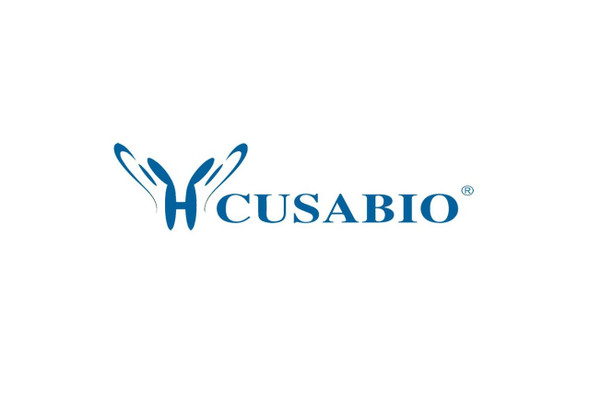Cusabio Mouse Recombinants
Recombinant Mouse C-type lectin domain family 4 member E (Clec4e) , partial | CSB-EP870809MO
- SKU:
- CSB-EP870809MO
- Availability:
- 13 - 23 Working Days
Description
Recombinant Mouse C-type lectin domain family 4 member E (Clec4e) , partial | CSB-EP870809MO | Cusabio
Alternative Name(s): C-type lectin superfamily member 9 Macrophage-inducible C-type lectin
Gene Names: Clec4e
Research Areas: Immunology
Organism: Mus musculus (Mouse)
AA Sequence: TYRSSQISGQNLQPHRNIKELSCYSEASGSVKNCCPLNWKHYQSSCYFFSTTTLTWSSSLKNCSDMGAHLVVIDTQEEQEFLFRTKPKRKEFYIGLTDQVVEGQWQWVDDTPFTESLSFWDAGEPNNIVLVEDCATIRDSSNSRKNWNDIPCFYSMPWICEMPEISPLD
Source: E.coli
Tag Info: N-terminal 6xHis-tagged
Expression Region: 46-214aa
Sequence Info: Extracellular Domain
MW: 23.6 kDa
Purity: Greater than 90% as determined by SDS-PAGE.
Relevance: C-type lectin that functions as cell-surface receptor for a wide variety of ligands such as damaged cells, fungi and mycobacteria. Plays a role in the recognition of pathogenic fungi, such as Candida albicans. The detection of mycobacteria is via trehalose 6,6'-dimycolate (TDM), a cell wall glycolipid. Specifically recognizes alpha-mannose residues on pathogenic fungi of the genus Malassezia. Recognizes also SAP130, a nuclear protein, that is released by dead or dying cells. Transduces signals through an ITAM-containing adapter protein, Fc receptor gamma chain /FCER1G. Induces secretion of inflammatory cytokines through a pathway that depends on SYK, CARD9 and NF-kappa-B.
Reference: "Mincle is an ITAM-coupled activating receptor that senses damaged cells."Yamasaki S., Ishikawa E., Sakuma M., Hara H., Ogata K., Saito T.Nat. Immunol. 9:1179-1188(2008)
Storage: The shelf life is related to many factors, storage state, buffer ingredients, storage temperature and the stability of the protein itself. Generally, the shelf life of liquid form is 6 months at -20?/-80?. The shelf life of lyophilized form is 12 months at -20?/-80?.
Notes: Repeated freezing and thawing is not recommended. Store working aliquots at 4? for up to one week.
Function: C-type lectin that functions as cell-surface receptor for a wide variety of ligands such as damaged cells, fungi and mycobacteria. Plays a role in the recognition of pathogenic fungi, such as Candida albicans. The detection of mycobacteria is via trehalose 6,6'-dimycolate (TDM), a cell wall glycolipid. Specifically recognizes alpha-mannose residues on pathogenic fungi of the genus Malassezia. Recognizes also SAP130, a nuclear protein, that is released by dead or dying cells. Transduces signals through an ITAM-containing adapter protein, Fc receptor gamma chain /FCER1G. Induces secretion of inflammatory cytokines through a pathway that depends on SYK, CARD9 and NF-kappa-B.
Involvement in disease:
Subcellular Location: Membrane, Single-pass type II membrane protein
Protein Families:
Tissue Specificity: Expressions were observed in peritoneal macrophage, macrophage cell line RAW 264.7, and myeloblastic leukemia cell line M1 following inflammatory stimuli.
Paythway:
Form: Liquid or Lyophilized powder
Buffer: If the delivery form is liquid, the default storage buffer is Tris/PBS-based buffer, 5%-50% glycerol. If the delivery form is lyophilized powder, the buffer before lyophilization is Tris/PBS-based buffer, 6% Trehalose, pH 8.0.
Reconstitution: We recommend that this vial be briefly centrifuged prior to opening to bring the contents to the bottom. Please reconstitute protein in deionized sterile water to a concentration of 0.1-1.0 mg/mL.We recommend to add 5-50% of glycerol (final concentration) and aliquot for long-term storage at -20?/-80?. Our default final concentration of glycerol is 50%. Customers could use it as reference.
Uniprot ID: Q9R0Q8
HGNC Database Link: N/A
UniGene Database Link: UniGene
KEGG Database Link: KEGG
STRING Database Link: STRING
OMIM Database Link: N/A









